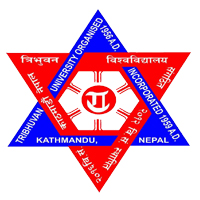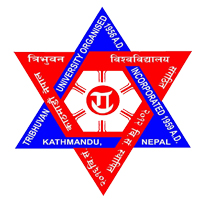Overview
Overviews of the PhD in English at Central Department of English Tribhuvan University, Kathmandu, Nepal
The PhD in English program offered by the Central Department of English at Tribhuvan University in Kirtipur, Kathmandu, Nepal, is a rigorous and comprehensive research program designed to produce scholars and researchers in the field of English studies. The program is affiliated with Tribhuvan University, ensuring high-quality education and recognized qualifications.
Course Outlines:
The PhD in English program covers a wide range of research areas within English language, literature, and linguistics. The course outlines include:
- Advanced Research Methodology: In-depth study of advanced research methodologies, data analysis techniques, and academic writing skills.
- Specialized Topics in Literature: Focus on specific literary periods, genres, authors, or thematic areas for extensive research and analysis.
- Linguistic Studies: Advanced exploration of linguistic theories, language structure, psycholinguistics, and sociolinguistics.
- Dissertation: Undertaking original and significant research under the guidance of a supervisor, culminating in the completion and defense of a doctoral dissertation.
Duration and Eligibility:
The PhD in English program has a duration of three to five years, depending on the research progress and completion of the dissertation. To be eligible for admission, applicants must meet the following criteria:
M. Phil degree in English are eligible to apply for Ph. D. Program subject to the approval of Research Committee, Faculty of Humanities and Social Sciences, TU.
Objectives:
The PhD in English program aims to achieve the following objectives:
- Develop advanced research skills and critical thinking abilities in the field of English studies.
- Foster independent and original scholarly research.
- Contribute to the advancement of knowledge in English language, literature, and linguistics.
- Enhance academic writing and presentation skills.
- Prepare graduates for careers in academia, research, and related fields.
Learning Outcomes:
Upon completion of the PhD in English program, students can expect to:
- Demonstrate expertise and mastery in a specific area of English language, literature, or linguistics.
- Conduct independent and original research that contributes to the field.
- Analyze and interpret complex literary texts and linguistic phenomena using advanced theoretical frameworks.
- Effectively communicate research findings through scholarly publications and presentations.
- Exhibit critical thinking and problem-solving abilities in the field of English studies.
Scope:
The PhD in English degree opens up diverse career opportunities for graduates. Some of the potential areas of employment and further study include:
- Academia: Pursue a career as a professor, researcher, or academic administrator in universities and educational institutions.
- Research Institutions: Engage in research projects, policy analysis, or consultancy in research organizations and think tanks.
- Publishing: Work as editors, researchers, or consultants in publishing houses, literary journals, or research organizations.
- Consultancy: Provide expert advice and consultancy services in language planning, literary analysis, or linguistic research.
- Government and Non-profit Organizations: Contribute to policy-making, language planning, or cultural preservation initiatives.
Fees Structure and Contact Information:
For detailed information regarding the fees structure and other admission-related queries, prospective students can contact the administration office of the Central Department of English at Tribhuvan University.
Career Prospects:
The PhD in English program equips graduates with advanced research skills, critical thinking abilities, and specialized knowledge that are highly valued in various professional fields. Some of the career prospects for PhD in English graduates include:
- Professor or Lecturer: Pursue a teaching career at universities and educational institutions, mentoring future generations of scholars.
- Researcher: Engage in research positions at academic institutions, think tanks, or research organizations, contributing to the field of English studies.
- Writer or Editor: Work as writers, editors, or consultants in publishing houses, research organizations, or media outlets, producing scholarly works or engaging in critical analysis.
- Policy Analyst: Provide expertise in language planning, literary analysis, or cultural policy-making in government or non-profit organizations.
- Academic Administrator: Take up leadership roles in academic institutions, overseeing research programs, curriculum development, and scholarly activities.
Why Choose this Course:
There are several reasons to choose the PhD in English program at the Central Department of English, Tribhuvan University:
- Research Excellence: The department has a strong research culture, encouraging scholars to pursue cutting-edge research in English studies.
- Expert Supervision: Students receive guidance and mentorship from experienced faculty members who are actively engaged in research and publications.
- Academic Community: The department provides a vibrant academic community that fosters intellectual exchange and collaboration among scholars.
- Professional Development: The program enhances research skills, critical thinking abilities, and academic writing proficiency, preparing students for successful careers in academia and research.
- Contribution to Knowledge: The program offers an opportunity to make original contributions to the field of English studies through independent research.
Scholarship Opportunities:
The Central Department of English offers scholarships to support students in their academic journey. Interested applicants can inquire about scholarship opportunities and eligibility criteria at the administration office.
Contact Central Department of English Tribhuvan University's administrative office for detailed information on the PHD in English course, including fees, scholarships, facilities, counseling, eligibility criteria, etc.















